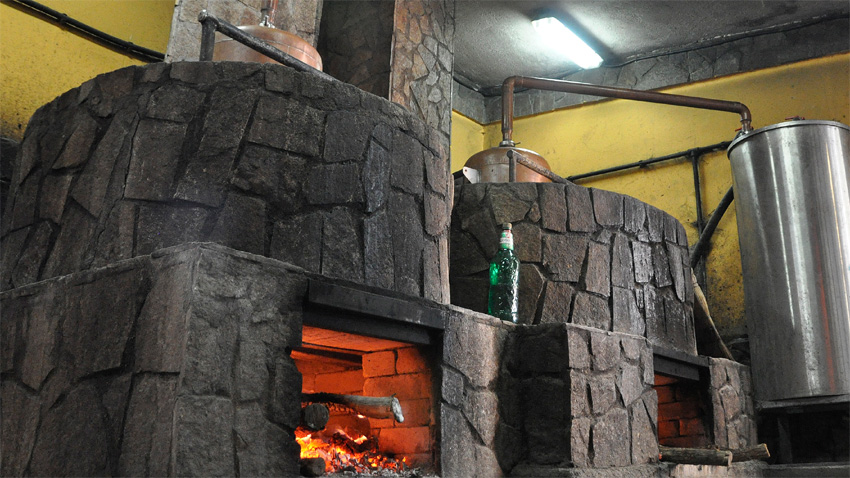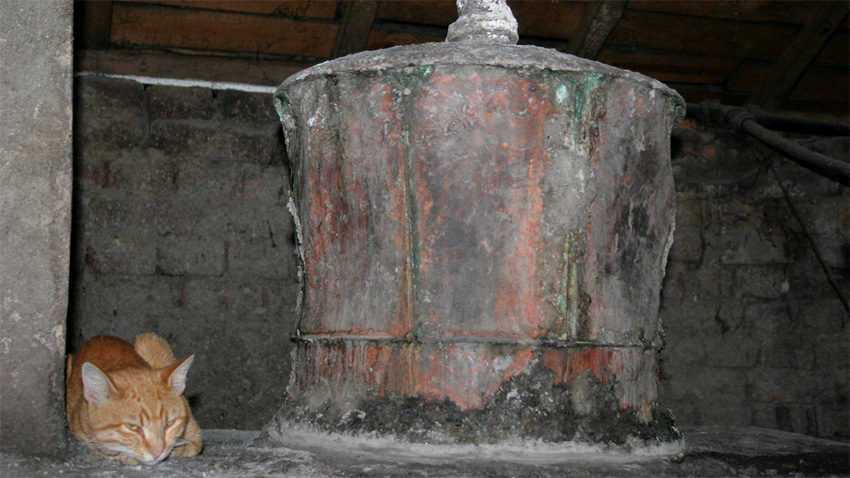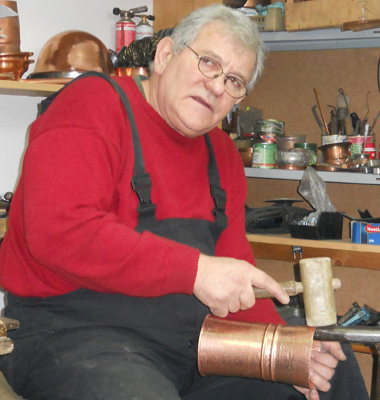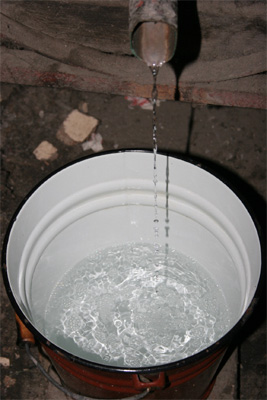A toast with the traditional grape or plum homemade brandy, also known as rakia, is a must on each Bulgarian table during various festivities and holidays. This alcoholic beverage is always part of the local weddings and christenings. People drink rakia on all occasions, even when they commemorate their deceased relatives. On Christmas and New Year’s Eve all Bulgarians make sure they have a good stock of their favorite drink, in order to stay in good mood throughout the winter holidays. The homemade rakia brandy goes well with the traditional local appetizers. Usually, rakia is made in the rural areas in some of the small stills. The local people know these places well and brew their fruit or grape brandy there.

 The fruit yield in 2015 was good and Bulgarians flooded the local distilleries, in order to make their own alcoholic beverage. Brewing is not a simple job. You must be patient and skillful to make high-quality rakia, coppersmith Blagoy Popov from the city of Plovdiv told Radio Bulgaria. He has been making stills for over thirty years now. He makes these brewing installations to order and says that people mainly buy stills with a total storage capacity of 250 liters. Some Bulgarians even order stills with a capacity of 1 ton and others buy very small facilities which can produce several shots of the homemade elixir. Few Bulgarian craftsmen make rakia stills and Blagoy is one of them. Nobody and nothing can stop Bulgarians from drinking their favorite beverage, and no other alcoholic drink can replace successfully the rakia, because it has long ago become part of our everyday lives, says Blagoy. The tradition of making rakia stills is very old says.
The fruit yield in 2015 was good and Bulgarians flooded the local distilleries, in order to make their own alcoholic beverage. Brewing is not a simple job. You must be patient and skillful to make high-quality rakia, coppersmith Blagoy Popov from the city of Plovdiv told Radio Bulgaria. He has been making stills for over thirty years now. He makes these brewing installations to order and says that people mainly buy stills with a total storage capacity of 250 liters. Some Bulgarians even order stills with a capacity of 1 ton and others buy very small facilities which can produce several shots of the homemade elixir. Few Bulgarian craftsmen make rakia stills and Blagoy is one of them. Nobody and nothing can stop Bulgarians from drinking their favorite beverage, and no other alcoholic drink can replace successfully the rakia, because it has long ago become part of our everyday lives, says Blagoy. The tradition of making rakia stills is very old says.

 “The first stills that appeared on Bulgarian land were ceramic. A copy of such a still is exposed at the Troyan museum", Mr. Popov adds. "The shape of the pot is based on multiple ceramic fragments found by local archaeologists. People distill alcoholic beverages worldwide, but Bulgarians call that drink rakia. They use similar technology to distill alcohol, but the taste of the local rakia is definitely different. The secret to each good-quality rakia is in the selection of the appropriate fruit. It must be well-ripen and pitted. A good grape rakia is made of wine. The distilling process is very important, because you should preserve the fragrance of the essential oils, which make rakia taste good. Once rakia is distilled, people add distilled water or herb distillates and essential oils. Bulgarians make good-quality rakia and win prizes at various world exhibitions and tasting events”, Blagoy Popov explains.
“The first stills that appeared on Bulgarian land were ceramic. A copy of such a still is exposed at the Troyan museum", Mr. Popov adds. "The shape of the pot is based on multiple ceramic fragments found by local archaeologists. People distill alcoholic beverages worldwide, but Bulgarians call that drink rakia. They use similar technology to distill alcohol, but the taste of the local rakia is definitely different. The secret to each good-quality rakia is in the selection of the appropriate fruit. It must be well-ripen and pitted. A good grape rakia is made of wine. The distilling process is very important, because you should preserve the fragrance of the essential oils, which make rakia taste good. Once rakia is distilled, people add distilled water or herb distillates and essential oils. Bulgarians make good-quality rakia and win prizes at various world exhibitions and tasting events”, Blagoy Popov explains. In his words, there is a very slight difference between homemade and factory made rakia, if people avoid making simple mistakes when they distill their homemade beverage. Those who have been distilling rakia for years make tasty and high-quality drinks, Blagoy Popov says and adds an anecdote:
“Drinking is not a simple job. That is why there are a series of anecdotes about alcohol consumption in Bulgaria’s folklore. Once, during the Great Lent, several young Bulgarians went to the village priest to ask him whether they would commit a sin if they drank rakia on these days. The priest opened the Holy Bible, but couldn’t find anything about rakia there. Finally, in order to give them a good advice and earn their respect, the priest told the young men that rakia was a smart thing and should be consumed responsibly. Otherwise, it takes peoples’ minds for one whole day. It is not good if rakia makes people dizzy on a daily basis”, Blagoy Popov said.
 Here is what Mr. Popov told Radio Bulgaria about the law related to rakia and the stills which distill that alcoholic beverage:
Here is what Mr. Popov told Radio Bulgaria about the law related to rakia and the stills which distill that alcoholic beverage:
“The excise duty law in Bulgaria is quite good. However, the authorities must control better its observance. Some MPs had an idea to increase excise duty on homemade rakia. However, such a measure would not help the state treasury collect more revenues. After all, the village still does not produce alcohol for commercial purposes, but it rather does favor to the local people. If the authorities’ efforts are focused on a better control on the quantities of produced alcohol more money would be collected by the state treasury. The legislation regarding rakia production that was valid until 1944 was a good example of how the state can collect higher revenues. According to that law, every Bulgarian citizen was obliged to declare the quantities of fruit used for alcohol production. A municipal officer used to visit peoples’ homes and set the excise duty before alcohol was even distilled. Thus, people paid their duties in advance and later they had to distill a high-quality rakia, in order to sell it at a reasonable price and return the money paid on excise duties”, Blagoy Popov explains.
English version: Kostadin Atanasov
Photos: BGNES and destilatori.euA Christmas tree with Bulgarian decorations has been placed in a central location at the Griffin Museum of Science and Industry in Chicago. For the fifth consecutive year, Bulgarians living in Chicago crafted the lavish decoration of the Bulgarian..
The usurpation of cultural heritage is one of the many inevitable consequences of any military conflict, both historically and today. Until the end of the war in Ukraine, it is impossible to adequately analyse the extent of the damage caused to the..
Athens plans to modernise the Greek army by 2030 Greece's Defence Minister Nikos Dendias presented the plan for changes in the army to the parties in parliament. The reforms will cover all three branches of the military. By 2030, 33 units..
The traditional Bulgarian Christmas picnic, organized by the Bulgarian Cultural and Social Association "Rodina - Sydney" and the Bulgarian School..

+359 2 9336 661
